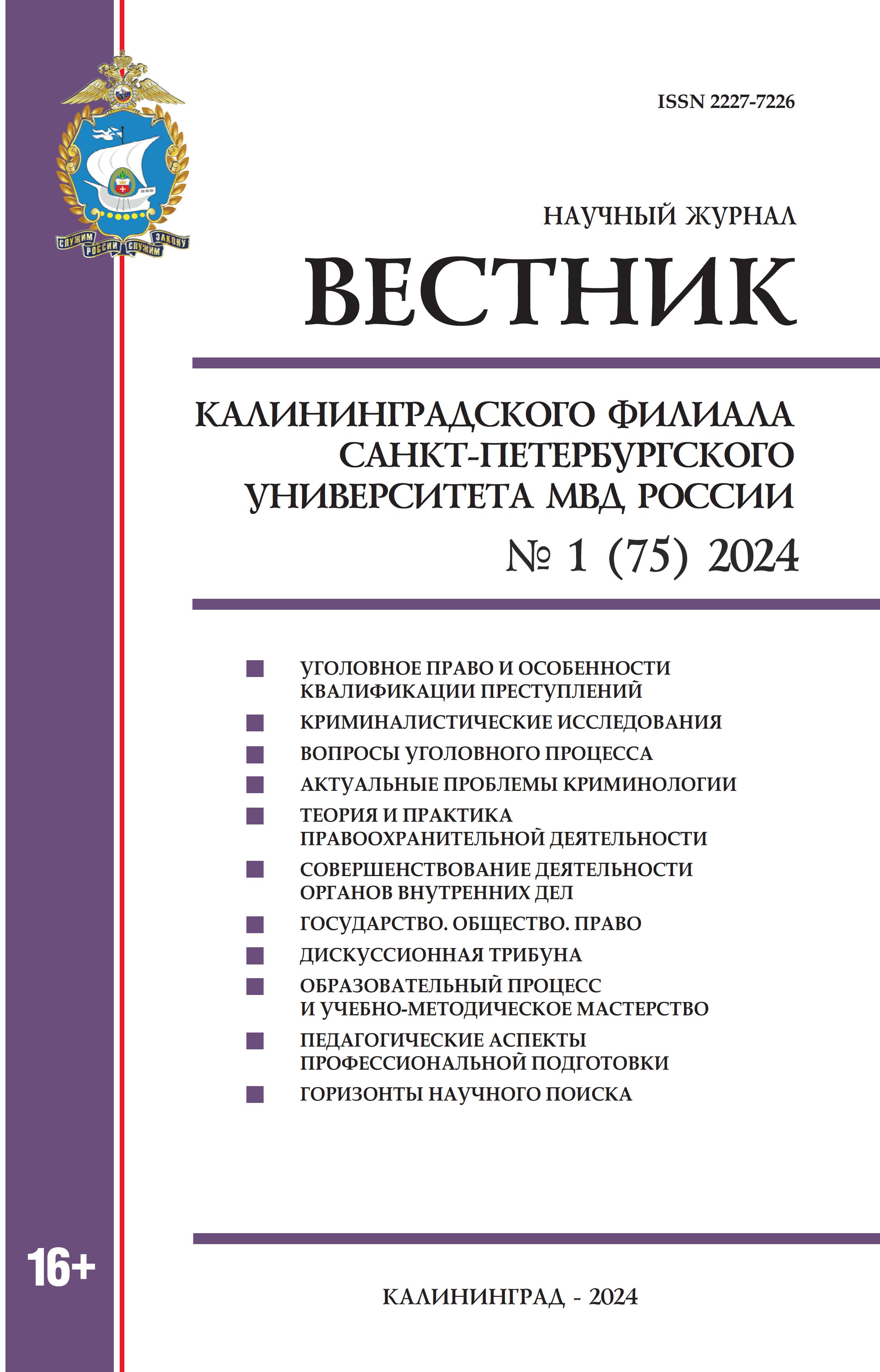Moscow, Russian Federation
from 01.01.2018 until now
Moskovskiy universitet MVD Rossii imeni V. Ya. Kikotya (kafedra filosofii, professor)
from 01.01.2023 until now
Moskovskiy universitet MVD Rossii imeni V. Ya. Kikotya (kafedra filosofii, professor)
g Kaliningrad, Kalinigrad, Russian Federation
Introduction. The article makes a social analysis of the factors of development of crime and criminal activity, which are capable of prompting a person to commit a crime. The relevance of the research topic is that the factors of the social subject, which can impel to the realization of criminal activity and activity in this sphere, are considered. Having determined the general characteristic of scientific knowledge aimed at studying crime, it is advisable to carry out some actions related to the reflection of its substantive aspect. Methods. The designated position is the starting point of the research. In relation to the key questions, the formulation of which is carried out at the level of the article, it is advisable to know what possible conditions and factors contribute to the increase in the level of criminal activity and subsequently crime, and what factors, in turn, contribute to the minimization of illegal activity. Results. Starting from these factors, it is possible to make judgments about which of the current social transformations may contribute to the growth of crime or its ongoing qualitative change, and which, in turn, may contribute to minimizing the manifestations of criminal activity in society and social environment.
Crime, factors of criminalization, conditions for criminalization of society, public safety, socially saving mechanisms, illegal activities.







